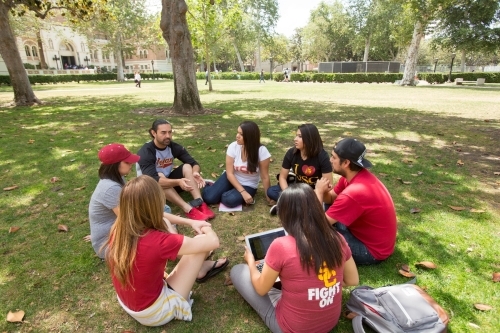Public Behavioral Health MSW Training Program
The Public Behavioral Health MSW Training Program offers stipends to eligible MSW students who are selected to participate. The stipends are provided as financial support during the training year to assist students with their educational expenses.
Stipend Amount
For full-time students: $25,000 per academic year, disbursed in two installments of $12,500 each.
For part-time students: $12,500 per academic year, disbursed in two installments of $6,250 each.
About the Program
The Public Behavioral Health MSW Training Program, funded by the California Office of Health Care Access and Information (HCAI), is a statewide initiative aimed at preparing MSW students for effective behavioral health care in publicly funded programs. San Jose State University administers the state-wide initiative. The program promotes the integration of behavioral health services with other public systems and seeks to enhance the retention and development of MSWs in public behavioral health programs in California.
Trainee Selection and Eligibility Criteria
The program is open to first- or second-year MSW students who meet the following criteria:
- Enrolled in participating MSW programs (on-campus or online students enrolled in full-time, part-time, advanced standing courses).
- Good academic standing in either the foundation year or advanced year of MSW study.
- Matched with practicum placements at sites receiving public funding for behavioral health care services.
- Not receiving funding support from other HCAI-administered training or scholarship programs.
The program seeks MSW students who demonstrate:
- Interest and commitment to learning about behavioral health care in public service settings.
- Linguistic and cultural competencies relevant to underserved consumers in California.
- Strong and sustained commitment to careers as behavioral health care providers in publicly funded programs.
For students applying for the PBH MSW Training Program at USC, eligibility means students graduating in:
- Spring semester: will receive the highest priority in the selection process.
- Summer semester: can apply for now but they will receive lower priority until the school can evaluate case-by-case if a student will be able to complete training requirements on time.
- Fall semester: are not eligible to apply at this stage.
Practicum Training Requirements
Foundation-year trainees contribute to the delivery of publicly-funded behavioral health care services, while advanced-year trainees provide such services. Eligible practicum training sites include community-based behavioral health care clinics and agencies, inpatient psychiatric hospitals, schools, colleges, SELPAs, inpatient and outpatient health care settings, as well as child welfare, regional center, juvenile delinquency, court, and adult corrections units that offer publicly funded behavioral health care programs and services.
Practicum Seminar Expectations
Foundation-year and advanced-year trainees must register for their respective first- and second-year practicum seminars (SOWK 591, SOWK 593 or SOWK 691, SOWK 693) virtually with an identified Public Behavioral Health faculty member. In addition, students will be required to take one elective to develop their skills to work in behavioral health and to secure California licensure. Students can choose to register for either:
- SOWK 612: Assessment of Mental Disorders, or
- SOWK 677: Mental Health Practice with Children and Adolescents.
Trainees are expected to participate in all program meetings and trainings, complete surveys, provide updated contact information and fulfill post-graduation obligations.
Additional Training Commitments
Graduates are required to provide 12 months of full-time employment as behavioral health care providers in publicly funded programs in California. They must also pursue LCSW licensure in California. If trainees fail to complete the 12-month employment requirement, they may be subject to fulfill post-graduation repayment obligations.
For specific eligibility questions or more information, please contact Associate Teaching Professor and Public Behavioral Health Coordinator for USC Christina (Tina) Paddock. In addition, please review the information session document from our funder for more information on this award.

Details will be announced in January 2026 for priority application deadline (late March / early April) and final application deadline (May).
PBH MSW Training Program Application
The USC Suzanne Dworak-Peck School of Social Work will review applications, conduct panel interviews with finalists and select awardees. Selected trainees will be notified after verifying their practicum placement eligibility. Stipends are provided based on campus enrollment rules, with two disbursements per academic year.